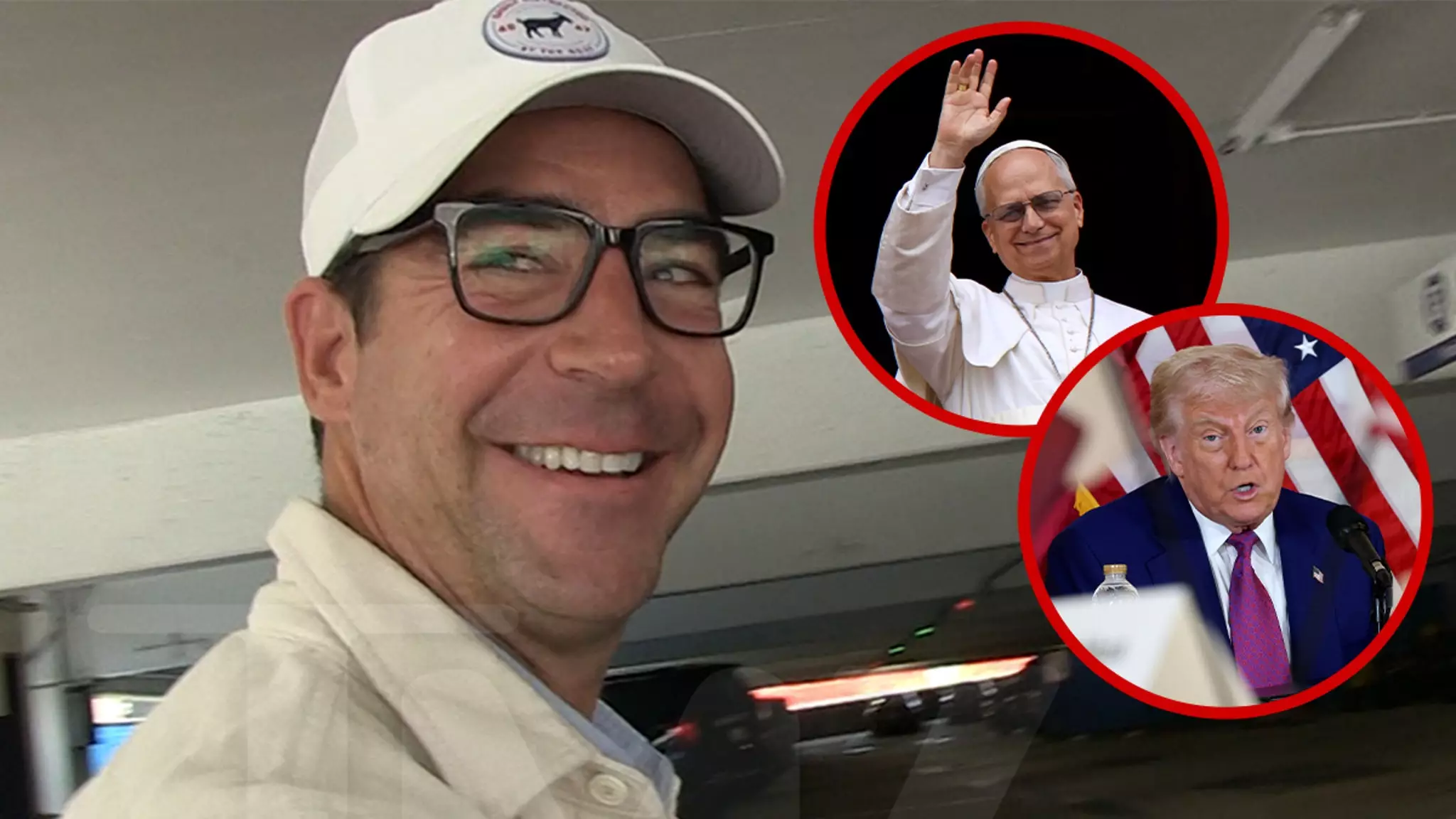In a world where spiritual leadership often intertwines with political discourse, the relationship between the Pope and American conservative politics appears to be as distant as it is defined. Jesse Watters, a prominent figure at Fox News, recently articulated a keen observation that reflects a larger sentiment among American conservatives—the belief that the Pope’s liberal inclinations will not significantly impact the traditional conservative agenda in the United States. Watters’s casual dismissal of the Papal stance suggests a deep-rooted confidence in the separation of church and state, a principle that continues to resonate strongly within the American political psyche.
Watters’ Perspective on Papal Influence
Upon intercepting Watters at LAX, it became clear that he views the Pope’s liberal views as inconsequential to the American political landscape. “The pope does his thing, and America does our thing, and it’s all good,” he stated, encapsulating a mindset that prioritizes national autonomy over external influences, even from revered religious authority. This perspective not only underlines a pragmatic approach to governance but also reflects the broader American reluctance to be swayed by foreign ideologies, particularly when they diverge from conservative values. Watters positions the Pope’s liberal stance as a matter of personal belief rather than political power, reinforcing the notion that domestic issues take precedence over celestial concerns.
Trump’s Diplomatic Invitations
Interestingly, the dynamic between Trump and Pope Leo XIV serves as an intriguing focal point in this conversation. Vance’s visit to the Vatican and subsequent invitation to the Pope illustrates an effort to bridge gaps between political power and spiritual influence. However, Watters casts doubt on the likelihood of this invitation leading to a meeting at the White House. His assertion that “most people gotta go to the Vatican to see the Pope” sheds light on the hierarchical nature of the Catholic Church and its traditions, positioning the Vatican as the center of power rather than any political installation across the Atlantic.
The Broader Implications for American Conservatism
This conversation raises vital questions about the role of religious leaders in shaping political ideologies. While the Pope holds significant Moral authority, the stark response from figures like Watters indicates a cultural schism that may actually fortify conservative resilience. The idea that spiritual leadership can be largely ignored hints at a broader endeavor within the conservative movement to stay true to fundamental beliefs without external pressure. In a landscape where values clash, asserting that the Pope’s liberalism won’t intrude upon conservative policy-making may very well serve as a rallying cry for grassroots conservatives nationwide.
As the lines continue to blur between faith and politics, it’s crucial for individuals to contemplate the real and perceived influence of religious figures in governmental affairs. Watters exemplifies an emerging narrative that champions American identity over globalized religious ideals, emphasizing a robust sense of independence in the face of ideologically divergent leadership. In the end, the notion that America’s political landscape remains impervious to papal influence is a powerful testament to the self-determination that many Americans cherish.

